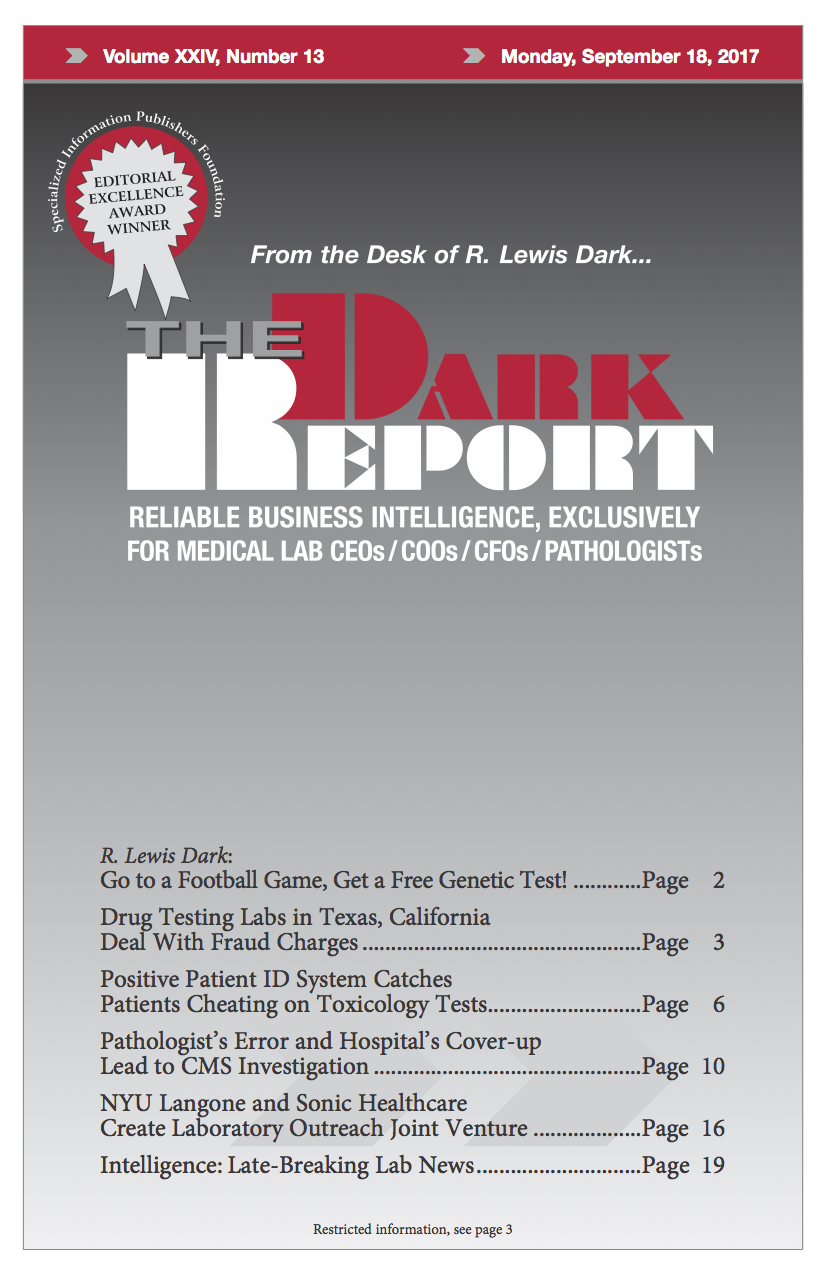Last week, 23andMe raised $250 million in a financing round led by Sequoia Capital. The company has an estimated value of $1.75 billion and has attracted $491 million in capital since its founding. In 2015, 23andMe formed a therapeutics division. This business unit is partnering with several major players in the pharmaceutical industry to use …
September 18, 2017 Intelligence: Late Breaking Lab News Read More »
To access this post, you must purchase The Dark Report.


